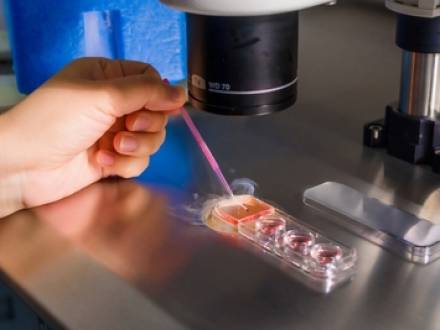Divorce Meets Science: Frozen Embryo Disputes in Family Law
 Although divorce is rarely simple or emotionally easy, when assisted reproductive technology is part of the equation, divorce can be even more complex. There have recently been some high-profile disputes over frozen embryos in Illinois. The question of whether to implant the embryos, donate them, or destroy them raises questions about reproductive rights, parenthood, and even property rights. Since Illinois courts do not yet have an absolute rule about frozen embryos during divorce, many couples could find themselves in uncharted waters as fertility issues collide with divorce laws.
Although divorce is rarely simple or emotionally easy, when assisted reproductive technology is part of the equation, divorce can be even more complex. There have recently been some high-profile disputes over frozen embryos in Illinois. The question of whether to implant the embryos, donate them, or destroy them raises questions about reproductive rights, parenthood, and even property rights. Since Illinois courts do not yet have an absolute rule about frozen embryos during divorce, many couples could find themselves in uncharted waters as fertility issues collide with divorce laws.
One of the most high-profile Illinois cases involving frozen embryos is Szafranski v. Dunston, 2015. A man and woman were dating when the woman was diagnosed with non-Hodgkin’s Lymphoma. Facing infertility from chemotherapy, she asked her boyfriend to donate sperm to create embryos, and he agreed, with both signing an Informed Consent document that said in part, "…no use can be made of these embryos without the consent of both partners." When the two broke up less than a year later, the man sued his ex to prevent her from using the embryos. Despite the signed consent forms, the court ultimately agreed that an oral agreement between the couple superseded the consent document.
With more and more couples using IVF and other fertility preservation methods, the question is likely to arise more often. There are emotional, ethical, and legal complexities tied to frozen embryos, which go far beyond marital asset division. If you and your spouse have frozen embryos, it is important to speak with a knowledgeable Will County, IL divorce lawyer with experience in this area. Since Illinois law has not fully codified embryo disputes, family courts typically look at intent and any available contracts.
How Does Illinois Treat Frozen Embryos During Divorce?
Illinois frozen embryo cases are sometimes treated as both property and potential life. Although some Illinois cases have leaned toward honoring consent agreements signed at the fertility clinic, the case above ignored the consent agreement in favor of a verbal agreement between the man and woman. That said, Illinois courts will often uphold agreements made with the fertility clinic regarding the disposition of the frozen embryos, treating that contract as legally binding.
If no contract exists between the couple, the court will look at the unique circumstances when making a decision. The goal is to balance a parent’s right against forced parenthood against the other partner’s wishes, and the potential life of the embryo. Without specific state laws or federal regulations governing frozen embryos, the court’s goal is to strike a balance between the rights and interests of both parties. The key legal questions in these disputes include:
- Are embryos property to be divided like other marital assets, or should they be handled separately?
- What was the couple’s agreement at the fertility clinic?
- Does the right to procreate take precedence over the right not to procreate?
- Are there additional medical or ethical issues in each unique situation?
What Are the Potential Scenarios Regarding Frozen Embryos in an Illinois Divorce?
One spouse may want to use the frozen embryos to become a parent after the divorce, while the other refuses. Both spouses may wish to be awarded the frozen embryos, but for very different purposes (donation vs. implantation). There may be religious or cultural issues added into the mix, which could potentially influence the decision. Infertility issues could be present; the frozen embryos may represent one partner’s only chance at biological parenthood.
Even when infertility is an issue, the courts must still balance the desire of one partner over the other’s wish not to be forced into becoming a parent. It is likely that we will see legislative action in the state to clarify disputes over frozen embryos, although advances in reproductive technology will likely continue to test the boundaries of family law.
Contact a Kendall County, IL Family Law Attorney
If you are having a dispute over frozen embryos, you need a strong legal advocate in your corner. A Will County, IL divorce lawyer from SpyratosDavis LLC understands the legal complexities and personal stakes with this issue. Our attorneys are highly focused on creating the best strategy for your situation. Call 630-810-8881 to schedule an initial attorney meeting.










